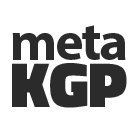Metakgp:Organization and coordination
See: Metakgp:Governance.
Currently there is no formal organization of the people running metakgp. There is an informal group which informally divides the work among itself. There are proposals to add more structure to the organization of MetaKGP for long term growth and sustainability.
Arguments against formal organization
Arguments in favor of Formal Organization
Jo Freeman in her essay Tyranny of the Structureless described that there is no "structureless organization" and only implicitly structured and formally organizations. The implicit power structures formed by implicit organization are not only inefficient, the power structures are also hard to recognize and rectify. In the case of KGP it has been seen that without formal roles and organization of volunteers, the other responsibilities of people take over and it becomes hard to get the work done. Jo Freeman also defines following principles of democratic structuring
1. Delegation of specific authority to specific individuals for specific tasks by democratic procedures. Letting people assume jobs or tasks only by default means they are not dependably done. If people are selected to do a task, preferably after expressing an interest or willingness to do it, they have made a commitment which cannot so easily be ignored.
2. Requiring all those to whom authority has been delegated to be responsible to those who selected them. This is how the group has control over people in positions of authority. Individuals may exercise power, but it is the group that has ultimate say over how the power is exercised.
3. Distribution of authority among as many people as is reasonably possible. This prevents monopoly of power and requires those in positions of authority to consult with many others in the process of exercising it. It also gives many people the opportunity to have responsibility for specific tasks and thereby to learn different skills.
4. Rotation of tasks among individuals. Responsibilities which are held too long by one person, formally or informally, come to be seen as that person's "property" and are not easily relinquished or controlled by the group. Conversely, if tasks are rotated too frequently the individual does not have time to learn her job well and acquire the sense of satisfaction of doing a good job.
5. Allocation of tasks along rational criteria. Selecting someone for a position because they are liked by the group or giving them hard work because they are disliked serves neither the group nor the person in the long run. Ability, interest, and responsibility have got to be the major concerns in such selection. People should be given an opportunity to learn skills they do not have, but this is best done through some sort of "apprenticeship" program rather than the "sink or swim" method. Having a responsibility one can't handle well is demoralizing. Conversely, being blacklisted from doing what one can do well does not encourage one to develop one skills. Women have been punished for being competent throughout most of human history; the movement does not need to repeat this process.
6. Diffusion of information to everyone as frequently as possible. Information is power. Access to information enhances one's power. When an informal network spreads new ideas and information among themselves outside the group, they are already engaged in the process of forming an opinion-without the group participating. The more one knows about how things work and what is happening, the more politicallyeffective one can be.
7. Equal access to resources needed by the group. This is not always perfectly possible, but should be striven for. A member who maintains a monopoly over a needed resource (like a printing press owned by a husband, or a darkroom) can unduly influence the use of that resource. Skills and information are also resources. Members' skills can be equitably available only when members arc willing to teach what they know to others.
Proposed Organizational Models
Hierarchical Organization
Holacracy
Holacracy is an organizational model which promises to do with bureaucracy and power centralization without incurring the inefficiencies associated with a lack of formal structure. It is done through organizing people in "circles". Each circle is responsible with effective execution of a particular tasks, each circle can be comprised of smaller circles for sub responsibilities. The way it differs from standard Hierarchical models is that people can be part of more than one circle depending on their skills and strengths and people can move in and out of circles depending on the situation. The Blinkracy handbook of Holacracy describes a set of rules and guidelines for effective management and communication.
Disadvantages
The biggest disadvantage of Holacracy is that and none of people involved in Metakgp are experienced in running and working in a organization modeled on Holacracy. Holacracy it is a new and untested model which might lead to confusion and lack of coordination among team members. User:Amrav also described Holacracy as over management.
